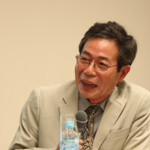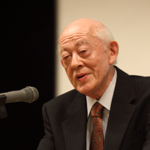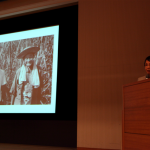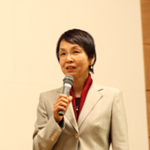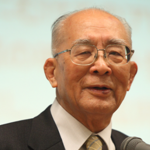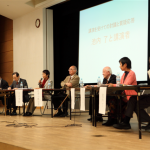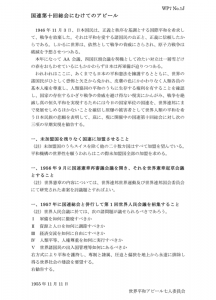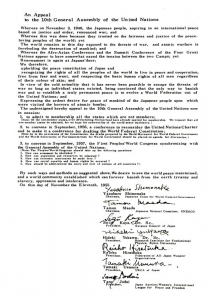WP7 No.116E
April 22, 2015
The Committee of Seven to Appeal for World Peace
Shin-ichiro IKEBE, Satoru IKEUCHI, Michiji KONUMA, Kinhide MUSHAKOJI,
Yoshino OISHI, Kaoru TAKAMURA, Hideo TSUCHIYAMA,
The overwhelming majority of the people of Okinawa have manifested, time and again, its opposition to the Plan of the Governments of the United States and of Japan to build a new Military Base of the U.S. Marine Corps by reclaiming the Bay of Henoko of Nago-City in Okinawa. Now the situation faces a serious confrontation.
This building of Henoko Military Base was the major issue of the Election of the Mayor of Nago City of January 2014, of the Election of the Governor of the Okinawa Prefecture of November 2014, and of the Election of the House of Representatives of the National Diet of December 2014. In all these elections, disputes fought around the Henoko issue was won by the candidates of “All Okinawa” alliance opposing the building of the Henoko Base by an overwhelming majority.
On the April 17, 2015, the Prime Minister Shinzo Abe met with the Governor of Okinawa, Takeshi Onaga. This meeting took place after a long stubborn refusal of Premier Abe to meet with the newly elected Governor Onaga over four months. At the start of the meeting Premier Abe said that the meeting was an occasion for a frank dialogue with the Governor. Yet he did not give any explanation about the concrete reason for maintaining that the Henoko Military Base was the only alternative in moving the Futenma Military Base which had been agreed to close down between the Japanese and the US Governments due to potential danger of serious accident in the midst of high population . He just stated repeatedly that “Henoko was the only solution” in response to Governor Onaga, who made a detailed exposition about the reason why he and the majority in the prefecture citizens could not accept this Plan.
The Government of Japan merely wants to apply the Plan to move the Futenma Military Base to Henoko proposed by bureaucrats of Japan and the United States in 1997, totally ignoring the present situation in which the people of Okinawa are experiencing a severe state of insecurity, without listening to the voices of the people of Okinawa opposed to this Plan.
The Abe Government legalized the unconstitutional concept of Collective Security, by a compromise lacking precision between the Liberal Democratic Party and the Komeito composing the Coalition Government, totally ignoring critical opinions of the opposition Parties in the Diet. The Government repeated undemocratic actions in order to create an international fait accompli in support of the so-called Proactive Peace Policy of Premier Abe. These actions of the Government regarding the U.S. Military Bases in Okinawa will make it impossible friendly relations between Japan and its neighbors including the United States itself.
The present situation in Henoko is not only a concern of the citizens of the Okinawa Prefecture. Petitions to the Central Government from Local Assemblies other than Okinawa such as the Village Assembly of the Hakuba Mura of Nagano Prefecture and the City Assembly of the Iwakura City of Aichi Prefecture criticized the Central Government ignoring the opposition to its plan on Henoko, demanding its respect to local autonomy, adopted in unanimity in the first case and by majorities in the second. The Local Government is not a branch office of the Central Government and the local autonomy should be respected by the Central Government according to the Law of Local Autonomy of Japan. It is the basic negation of democracy, we believe, that the Government neglects totally the determination of the Governor based on the will of the people.
The Committee of Seven to Appeal for World Peace made public two Appeals, in October 25, 2011, and in January 7, 2014, expressing its opposition to the creation of a U.S. Military Base in Henoko, and demanding respect of the historical past and future prospect of Okinawa by the Central Government.
The Local Defense Bureau in Okinawa has dropped 20 to 45 tons of concrete blocks into the Henoko Bay in connection with the construction of the runway on the sea authorized in August 2014 by the Okinawa Prefecture Government. On March 25, 2015 Governor Onaga ordered the stop of this construction work within 7 days for investigation of suspected violation of the condition of the approval, because of the dropping of concrete blocks outside of the permitted area and of demolishing the coral. On March 30, 2015, Yoshimasa Hayashi, Minister of Agriculture, Forestry and Fisheries, sent to the Okinawa Prefecture and the Local Defense Bureau an order of suspension of the instruction of Governor Onaga. This order was heavy-handed and indifferent that the dropping area was over the borderline of the previous permission and that the natural environment was demolished.
At present, the citizens of Okinawa Prefecture develop a non-violent campaign against the uncompromising maritime construction of the new Military Base in Henoko. They maintain a sit-in in front of the Camp Schwab, and organize a fleet of kayaks in opposition to the boring activities in the Henoko Bay.
We, the Committee of Seven to Appeal for World Peace, express its deep admiration for the non-violence of these activities. On the other side, the U.S. Military Forces, The Committee protests to the US Military Force, Japanese Police and Coast Guard who use violent measures against the resistant citizens, which cause casualties and arrests among them, since this is a clear violation of freedom of assembly and expression provided in the Article 21 of the Constitution of Japan.
The closing of Futenma Military Base is also urgent measure already discussed about 19 years ago in 1995 between Japan and the United States. The agreement between the then Premier Ryutaro Hashimoto and U.S. Ambassador Walter F. Mondale declared the return of the whole Futenma Base within 5 to 7 years. The present Government of Japan recognizes the insecurity caused by this base located in heavily populated area which was the cause of the agreement. The possibility of accidents should be seriously considered, without depending on the unfounded optimism assuming that such incidents would not occur. This is why the Futenma Base must be immediately closed. The reduction and closing of Military Bases is in itself useful for the reduction of international conflicts as history tells us.
In history Ryukyu (present Okinawa) was an independent Kingdom between the 15th and 19th centuries. It signed Treaty of Amity with the United States (July 11, 1854), with France (November 24, 1855), with the Netherland (July 6, 1859). It was invaded by the Satsuma Clan of south Kyushu in 1609, and was annexed to Japan by the so-called “Ryukyu Disposition” of the Meiji Government using military pressure.
We should not ignore the abnormal discrimination of the concentration of 74% of the U.S. Military Bases in Okinawa which covers only 0.6% of the Land of Japan. We must stop the destruction of the ecology of the beautiful Bay of Henoko which is the habitat of dugongs, sea turtles and coral.
We, the Committee of Seven to Appeal for World Peace, strongly protest the heavy-handed measures of the Central Government of Japan ignoring the right to live in peace of the citizens of Okinawa and call all the citizens of the Mainland of Japan to strengthen their solidarity with the citizens of Okinawa Prefecture in their opposition to the creation of U.S. Military Base in Henoko.
PDF Appeal→ 116e.pdf
116e.pdf
![]() 136e.pdf
136e.pdf
